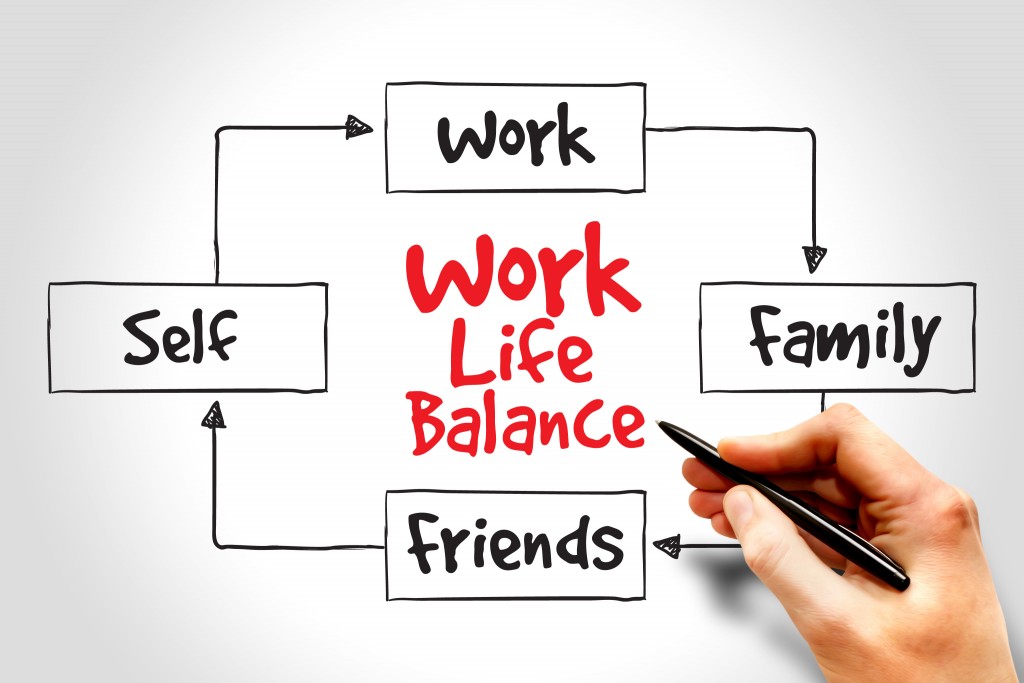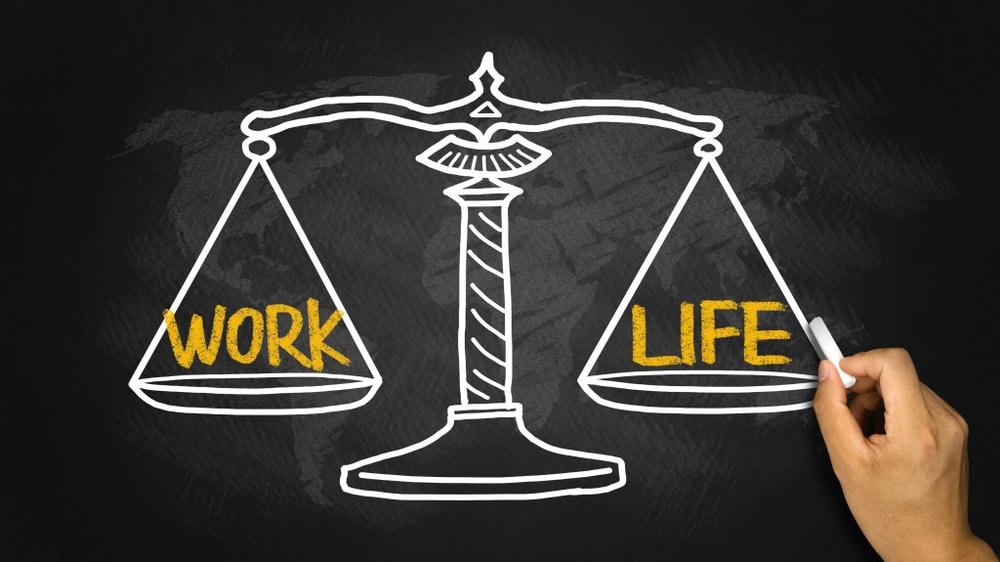Work-Life Balance for Attorneys: Real or Myth?
January 13, 2016
Let’s face it, the practice of law is not exactly on par with the concept of work-life balance. We have all been there; skipping a family celebration, canceling an evening out, and even falling behind on that perfect workout schedule, all in the name of “putting in our time” at the firm. By its very nature, the private practice of law, for the most part, does not lend itself well to a schedule that allows attorneys—particularly young attorneys—regular opportunities to balance their work obligations with rewarding family and personal lives. This is rooted in the fundamental notion—whether accurate or not—that practicing law offers the greatest rewards to those attorneys who live, breathe, and embody the concept of first-in and last-out of the office.
So, is it possible to have a successful and satisfying career practicing law, and at the same time enjoy a rewarding personal life, or is this just a myth? By creating “balancing checks,” reviewing and updating them periodically, and maintaining an honest commitment to them, attorneys can achieve a work-life balance that will allow them greater latitude to enjoy rewarding professional careers and personal lives.
What is Work–Life Balance?
The term Work-Life Balance simply refers to the synergy between your employment and all of the other commitments in your life, such as family, friends, community involvements, health and fitness, and social activities, with an effort to attain as much balance between these elements as possible.
Inherent in the definition is the appreciation that a 50/50 balance is impossible, if for no reason other than the fact that as attorneys, we spend an overwhelming amount of our time working.
Also there are the presumptions that (1) there is enough time in the day to effectively accomplish work-related tasks; (2) you can get through your daily work and family responsibilities without feeling drained or dissatisfied; and (3) you have the ability to participate in activities you enjoy on a regular basis, including having the time for loved ones, fun, rest, exercise and other activities.
Why do Attorneys believe work-life balance is a myth?
Perhaps a majority of attorneys believe work-life balance is a myth. The most commonly cited obstacle to a balanced life is the sheer number of hours attorneys are required to work. Understandably, promoting work and life balance, while achieving firm’s expectations that attorneys work long hours and days, and meet increasing billable hours, seems inconsistent.
In the 1960s, a full-time attorney typically billed 1300 hours per year. When salaries spiraled up in recent decades, hours spiraled up, too. Now commonplace are billable hour requirements in the range of 2000–2300 hours per year. Billing 2000 hours roughly translates to working 60 hours a week.
In addition to ever increasing billable hours, attorneys in private practice are expected to become “rainmakers”— those who bring new clients into the firm or, in the very least, promote continued business from existing clients. Rainmaking lends itself to a host of duties and responsibilities, such as marketing and networking, in addition to those inherent in the day-to-day hustle and bustle of private law practice.
This translates into more hours at the office, or on some work-related activity to promote firm business, which further undermines the belief that a work-life balance is achievable. Despite the increased status and money associated with rainmaking, there is a vital problem where many lawyers hate rainmaking and aren’t good at it.
Attorneys who believe work-life balance is a myth also cite to the climate of economic uncertainty in support of their theory. Associates are not only concerned with the diminished chances of making partner, but are also concerned that they may be out of a job unless they are putting in some serious hours at the office.
Despite strong beliefs that work-life balance is a myth, there is hope.
Developing “Balancing Checks”
Although the definition of work-life balance may seem essentially uniform, developing a plan to achieve a work-life balance is unique to each attorney. All attorneys are not the same, as we each have differing goals, values, and definitions of success. What may work for one attorney, may not have the same positive results for another.
Similarly, what worked for you to achieve work-life balance five years ago or even one year ago, may not work as well today as our lives are periodically changing, evolving, and becoming more challenging and demanding. Accordingly, it is important to take the time and effort now to develop what I call “balancing checks.”
“Balancing checks” are barometers against which you can gauge whether or not your plan to achieve a work-life balance is working. “Balancing checks” are also beacons to help you find your way back should you run off course from your work-life balance plan.
Developing a good plan to achieve work-life balance should, include the following “balancing checks”:

(1) Define your values and priorities. Not everything we do has value or is a priority, although it sometimes feels that way. The sooner you come to that realization, the sooner you can begin to devote your time and energy on doing things you really care about.
The way to know what holds the most meaning for you is to define your values. Values are the things that we are most naturally drawn to; those things that we do without having to labor at it or struggle with. When you define your values, you have something concrete to check-in with when making decisions and setting priorities.
Your values form the basis of how you approach your life, and when you set your priorities in accordance with your values, there is less stress and pressure. When we live and work according to our values, it doesn’t feel like hard work. Defining your values and priorities is an ongoing process and you may find that over time they change slightly or their importance alters.
(2) Identify your balance “distractions”. Balance distractions are those thoughts or actions that stand in the way of achieving balance. They are negative perspectives we develop and maintain to justify our inability to pursue balance-related goals.
Some examples of distractions (and suggestions as to how to rectify them) are:
(a) Living for the expectations of others at work and at home. You first have to be happy with who you are and the work you do, before you can seek to please others.
(b) Consistently putting the needs of others before your own. As an attorney, we advocate for our clients, but you first need to advocate for yourself in achieving a promising balance in your life.
(c) Fear of change. There is no need to continue to embrace the “everyone else is putting in long hours at the office, so I should too” motto.
(d) Multitasking. Multitaskers might feel like they’re getting more done, but it almost always takes longer to multitask than to devote your attention to one thing at a time.
(e) Boredom. Dull tasks can sap your ability to focus and make you more vulnerable to distraction.
(f) Electronic interruptions. Checking emails every few minutes and immediately working on responses (regardless of the time of the day or the day of the week) can prove to be taxing on your time and energy, as well as detract you from timely and properly completing your work.
Once you identify your balance distractions, pay attention to when you use them as excuses to justify a lack of balance in your life, and explore ways to accomplish your goals in spite of your particular balance distractions.
(3) Build “not available” time blocks in your weekly schedule. These time blocks are periods of personal time that are set aside for yourself, that absolutely cannot be rescheduled or canceled—they are simply not negotiable. Devote at least 30 minutes to each time block, and include it on your calendar just like any other appointment or commitment.
You can use the time for anything that is not work-related. This time is allocated to focus on you. Go workout, get a massage, take yourself to the park, spend time with family or friends, or just do nothing! Just pick something that you’ll enjoy. If a date night with your spouse or a softball game with friends is on your calendar, you will have something to look forward to and an extra incentive to manage your time well so you will not have to cancel.
You can also use these time blocks to create routines to add stability and order to your life, including:
(a) Morning and bedtime routines. For example, meditating in the morning and winding down the day with a mind-clearing and calming exercise, like reading a book.
(b) Exercise routines. Even if you can’t get to the gym, short periods of just moving your body are still proven stress-reducers.
(c) Quiet time/creative time routines. Creativity is cathartic – it allows you to channel stress, anger, resentment, or whatever other negative emotions you may be holding onto in a productive, healthy way. So pop on some headphones, write posts for your blog, or send your mom a thoughtful card in the mail.
Start slow and gradually build more blocks of time into your schedule that are important to you. The key here is to be proactive and schedule these blocks of time in advance. Set these blocks of time on Sunday evening, before the start of your work week.
(4) Develop boundaries on your work and communicate those boundaries to your employer. Being an attorney will take as much time as you give it. There is always one more assignment to be completed, and one more deadline to meet. It is each attorney’s responsibility to set their own boundaries, and a clear conviction to stick to those boundaries.
Have a clear understanding of what your office hours are, or better yet what hours do you absolutely need to be at the office, and strive not to do anything work-related (such as checking voicemails and emails on your commute or walk to the office) until you are actually in the office and during office hours.
Make it clear to your office staff and superiors, and even clients, that you will not be available after a certain time, such as 6:00 P.M. or on weekends. Even when responding to emails, explain that those are the hours you are reserving time for yourself, family and friends.
Some sturdy guideposts upon which to advocate for these boundaries are “Happy,” “Healthy,” and “Hopeful”. Employees who are happy and engaged have time to pursue things which recharge them physically and spiritually. They are hopeful that they can maintain a work-life balance and are statistically more productive, more loyal, more efficient, and less likely to experience burnout and commit errors or oversights.
Colleagues and clients respect individuals who have strong concepts of developing separations from work and personal life; particularly individuals who effectively advocate those boundaries by having candid communications with them about the importance of having that personal time.
This is not an invitation or even a suggestion to slack off at work. Rather, make it clear to colleagues and clients that you intend to achieve your firm’s goals, hourly commitments, and deadlines in an efficient manner that does not compromise work-product quality or timeliness. Key elements here are being consistent with those times you will not be available and resisting the urge to revert back to your old schedule.

(5) We all need a little help sometimes. Whether at home or at work, if you are drowning under a sea of chores or assignments and deadlines, simply asking people to help to ease the burden could restore some balance to your life. Remember, coworkers and partners are not mind readers and won't know that you have too much on your plate, unless you tell them and invite them to help.
By reducing the amount you have to do, you will be able to focus more effectively on each assignment or task, and may even find you gain a little free time as a result. Moreover, chatting with friends and family can be important to your success at home—or at work—and can even improve your health. Studies have shown that people with stronger support systems have more aggressive immune responses to illnesses than those who lack such support.
Also, utilize the technology available to you—smartphones, laptops, and remote network access—to work efficiently and effectively to complete assignments on your schedule without having to be at the office. Lastly, utilize the “human resources” available to you, such as your office staff, by delegating work to them that they can complete, retaining for yourself those essential tasks and assignments that only you can complete.
This may seem like an unattainable goal or plainly a myth, but having work-life balance as an attorney in private practice is achievable. By developing “balancing checks,” you have the opportunity to enjoy a successful and satisfying career practicing law, and at the same time, enjoy a rewarding personal life.
Creating the right work-life balance that will work for you takes time, energy and patience. It is a process, so take it one step at a time and do not lose faith. Although you may feel too overwhelmed to start tackling your work-life balance, a little effort in this area can go a long way and leave you feeling much more content about all aspects of your life.
Always remember: we work to live.

Fabio Sciarrino Esq is a Civil Trial/Litigation Attorney from Philadelphia, Pennsylvania who has been practicing Personal Injury for 12 years. Follow him on Twitter.